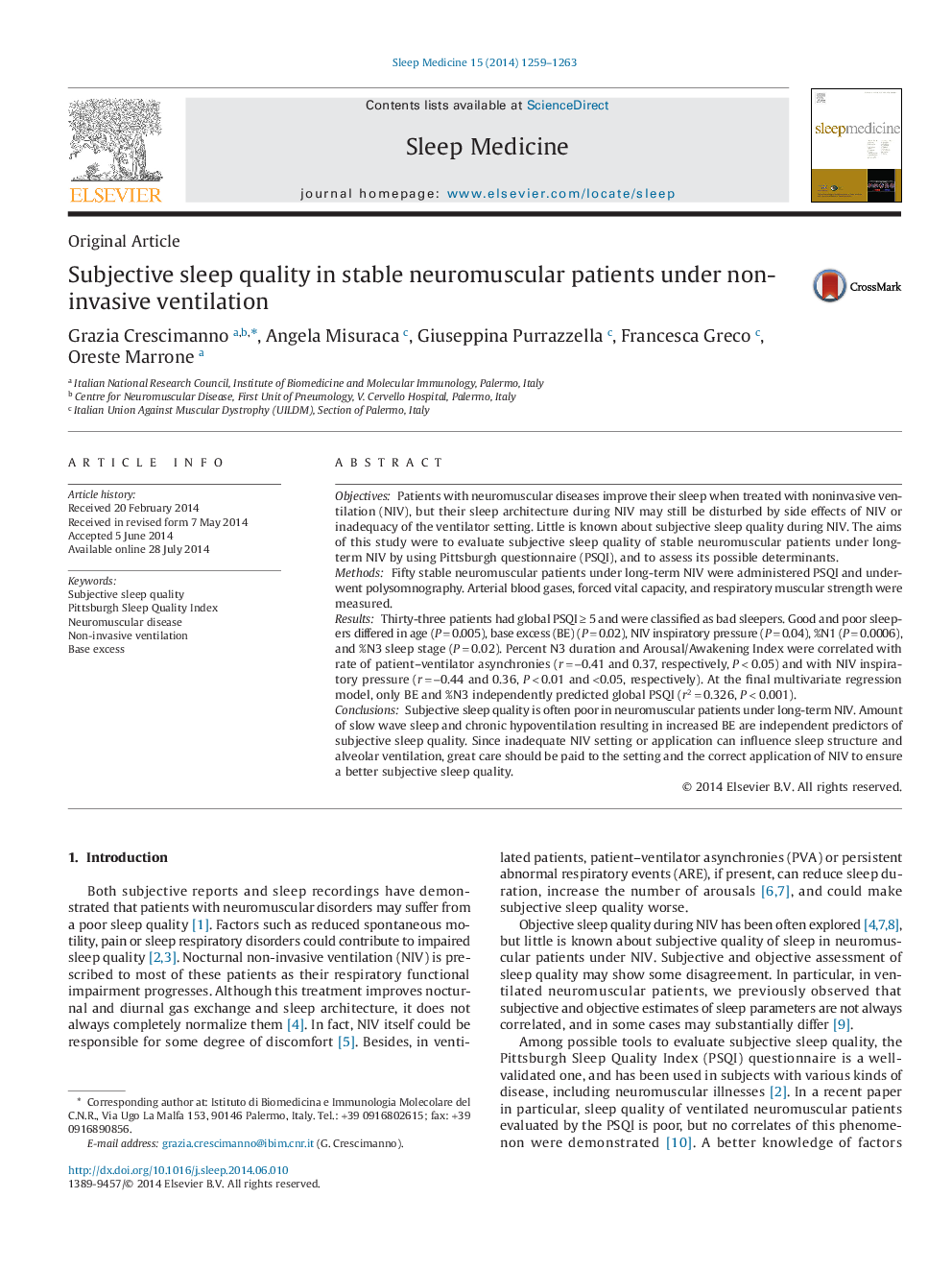| Article ID | Journal | Published Year | Pages | File Type |
|---|---|---|---|---|
| 3176069 | Sleep Medicine | 2014 | 5 Pages |
ObjectivesPatients with neuromuscular diseases improve their sleep when treated with noninvasive ventilation (NIV), but their sleep architecture during NIV may still be disturbed by side effects of NIV or inadequacy of the ventilator setting. Little is known about subjective sleep quality during NIV. The aims of this study were to evaluate subjective sleep quality of stable neuromuscular patients under long-term NIV by using Pittsburgh questionnaire (PSQI), and to assess its possible determinants.MethodsFifty stable neuromuscular patients under long-term NIV were administered PSQI and underwent polysomnography. Arterial blood gases, forced vital capacity, and respiratory muscular strength were measured.ResultsThirty-three patients had global PSQI ≥ 5 and were classified as bad sleepers. Good and poor sleepers differed in age (P = 0.005), base excess (BE) (P = 0.02), NIV inspiratory pressure (P = 0.04), %N1 (P = 0.0006), and %N3 sleep stage (P = 0.02). Percent N3 duration and Arousal/Awakening Index were correlated with rate of patient–ventilator asynchronies (r = −0.41 and 0.37, respectively, P < 0.05) and with NIV inspiratory pressure (r = −0.44 and 0.36, P < 0.01 and <0.05, respectively). At the final multivariate regression model, only BE and %N3 independently predicted global PSQI (r2 = 0.326, P < 0.001).ConclusionsSubjective sleep quality is often poor in neuromuscular patients under long-term NIV. Amount of slow wave sleep and chronic hypoventilation resulting in increased BE are independent predictors of subjective sleep quality. Since inadequate NIV setting or application can influence sleep structure and alveolar ventilation, great care should be paid to the setting and the correct application of NIV to ensure a better subjective sleep quality.
